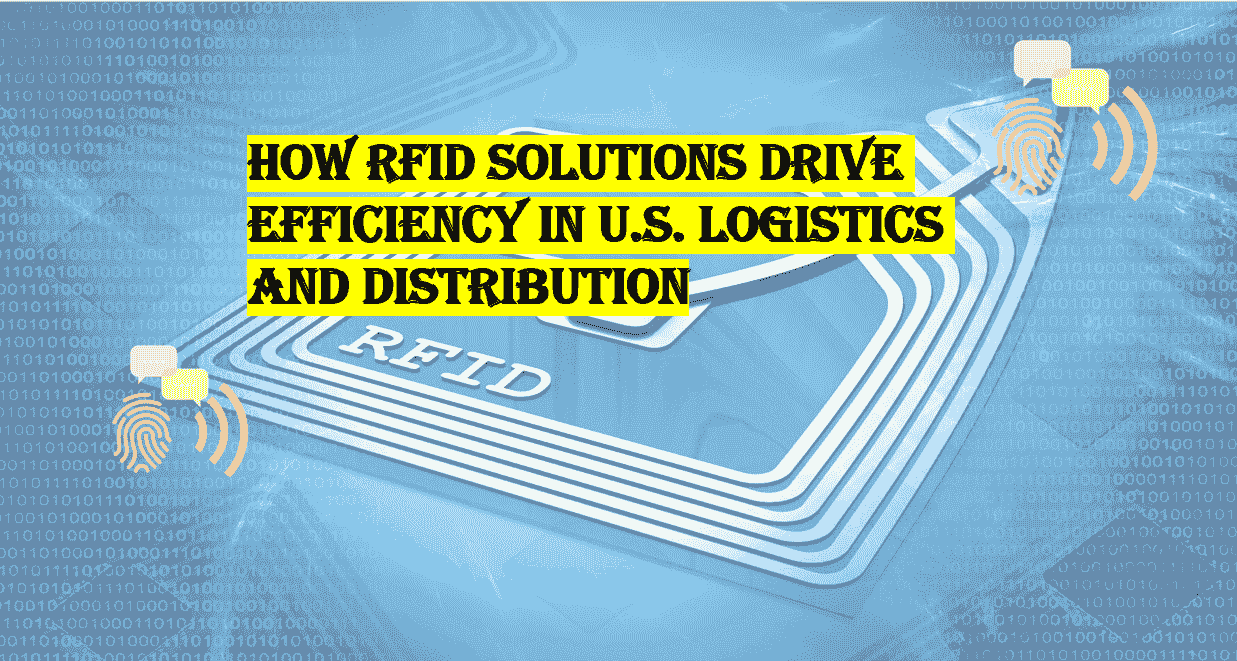How RFID Solutions Drive Efficiency in U.S. Logistics and Distribution
In today's fast-paced world, logistics and distribution are critical to ensuring businesses meet customer demands quickly and accurately. With the ever-growing complexity of the global supply chain, companies are increasingly turning to Radio Frequency Identification (RFID) technology to optimize operations. RFID solutions are transforming the way goods are tracked, stored, and shipped across the United States, providing significant improvements in shipment tracking, order accuracy, and speed. This article explores how RFID solutions drive efficiency in U.S. logistics and distribution.
Table of Contents
- Introduction
- What is RFID Technology?
- Improving Shipment Tracking
- Enhancing Order Accuracy
- Speeding Up Logistics Operations
- Real-World Applications of RFID in U.S. Logistics
- Conclusion
What is RFID Technology?
RFID is a wireless communication technology that uses electromagnetic fields to transfer data between a tag attached to an object and a reader. These tags can be passive (requiring no battery) or active (powered by a battery), and they are capable of storing information such as the item's location, condition, and identity. RFID tags have become indispensable in modern logistics as they enable real-time tracking and enhanced visibility across supply chains.
Improving Shipment Tracking
One of the most significant advantages of RFID technology in logistics is its ability to improve shipment tracking. Traditional tracking methods, such as barcode scanning, require line-of-sight and manual input, which can be prone to errors and inefficiencies. In contrast, RFID provides automated and real-time tracking, allowing companies to monitor the movement of goods throughout the entire supply chain, from manufacturer to warehouse to final delivery.
RFID readers can detect tags at various points along the supply chain, allowing logistics providers to instantly know the location of each item. This enhanced visibility helps businesses avoid delays and lost shipments. With RFID, companies can track shipments across multiple locations simultaneously without requiring employees to manually scan each item. This results in a faster, more reliable way to monitor inventory and shipments in transit.
For instance, large logistics companies like FedEx and UPS have integrated RFID into their operations to streamline parcel tracking. Customers can receive real-time updates on the location of their packages, reducing uncertainty and improving customer satisfaction. RFID also provides a detailed log of each package's journey, helping logistics providers identify potential bottlenecks and areas for improvement.
Enhancing Order Accuracy
Order accuracy is another area where RFID solutions offer transformative benefits. In traditional logistics operations, human error often leads to incorrect shipments, whether it's picking the wrong items from the warehouse or shipping products to the wrong address. This not only affects customer satisfaction but also increases operational costs due to returns, re-shipping, and potential inventory mismatches.
RFID technology eliminates many of these problems by providing automated data capture. As goods move through various stages of the supply chain, RFID tags provide a continuous flow of information, which can be cross-referenced with order data. Warehouse employees can instantly verify that the correct items are being picked, packed, and shipped, minimizing errors that might occur with manual scanning or visual checks.
For example, RFID-enabled systems can alert warehouse staff when a product is incorrectly labeled or if it doesn't match the order specifications. This immediate feedback helps prevent costly mistakes before they impact the customer experience. By using RFID, companies can ensure that each shipment is accurate, reducing the risk of returns and enhancing overall order fulfillment.
Moreover, RFID technology can help streamline inventory management by ensuring that every item in the warehouse is accounted for and tracked with precision. This reduces the chances of stockouts, overstocks, and misplaced goods, ensuring that the right products are available when needed. With improved order accuracy, businesses can meet customer expectations more effectively and operate at a higher level of efficiency.
Speeding Up Logistics Operations
Speed is of the essence in logistics, and RFID plays a crucial role in accelerating operations. Traditionally, processes like inventory counting, order picking, and shipping were time-consuming and often involved significant manual labor. RFID drastically reduces the time spent on these tasks by automating data collection and eliminating the need for manual input.
For example, RFID-enabled inventory systems allow warehouse workers to scan entire pallets of goods at once, without the need to scan individual items. This drastically reduces the time it takes to complete stock counts and inventory checks. Additionally, RFID tags can be read from a distance and don't require direct line-of-sight, allowing for more efficient tracking of goods as they move through various stages of the supply chain.
In shipping, RFID technology helps speed up the loading and unloading of goods. With RFID tags, freight carriers can quickly scan and identify the contents of a shipment without having to manually sort through packages. This streamlines the process and reduces delays, ultimately improving turnaround times for deliveries.
RFID technology also plays a role in optimizing delivery routes and improving fleet management. By integrating RFID with GPS tracking, logistics companies can track the real-time location of delivery vehicles and adjust routes to avoid traffic or weather disruptions. This level of automation and data analysis helps businesses make smarter decisions and cut down on delivery time, further enhancing operational speed.
Real-World Applications of RFID in U.S. Logistics
Several major logistics providers in the U.S. have successfully implemented RFID solutions, reaping the benefits of improved efficiency. Companies like Walmart, Amazon, and Home Depot have invested heavily in RFID technology to improve their supply chain operations. These businesses use RFID to enhance inventory management, streamline order fulfillment, and provide customers with faster, more reliable service.
For example, Walmart has adopted RFID in its distribution centers to automate inventory tracking and improve product availability. By integrating RFID with its existing supply chain systems, Walmart has achieved a higher level of accuracy in its inventory, reducing stockouts and ensuring that products are available for customers when they need them.
Similarly, Amazon's fulfillment centers use RFID to streamline product picking, packaging, and shipping. The technology enables Amazon to process orders more quickly, helping the company maintain its fast delivery times and exceptional customer service.
Conclusion
RFID solutions are revolutionizing logistics and distribution in the U.S. by providing real-time tracking, enhancing order accuracy, and speeding up operations. By automating data collection, reducing human error, and improving visibility throughout the supply chain, RFID technology is helping businesses operate more efficiently and deliver better service to customers. As the logistics industry continues to embrace innovation, RFID will play an increasingly vital role in driving efficiency and meeting the demands of modern supply chains.



